Joseph Amaral
Born in Povoação, a small municipality on the island of São Miguel, Açores, Joseph Amaral has been living in Canada since 1963, where he has enjoyed a successful career as a commercial photographer. Specializing in editorial and corporate work, Amaral is recognized for his haunting black-and-white imagery and use of light.
In 2012, he travelled to São Miguel, journeying throughout the archipelago to compile a book, Over the Hills and Far Away, that celebrates the spirit of a people and the rich cultural traditions of the island of São Miguel.
Amaral’s work has been exhibited at Scotiabank’s CONTACT Photography Festival, xPose, Academia das Artes dos Açores and published in numerous publications. His latest exhibit, “500 Years – The Romeiros of São Miguel” is currently on display at The Peach Gallery in Toronto.
In this month’s edition, we present a view of Amaral through his lens…
Revista Amar: Joseph, como está o seu português?
Joseph Amaral: Oh, boy. Was better when I was in São Miguel… (laughs) o “problema” com o meu português é perceber o que as pessoas estão a dizer, porque só falei português até aos 6 anos e depois só passei a falar inglês porque quando viemos para cá, onde morávamos não havia portugueses e os meus pais também queriam que eu só falasse em inglês para que eles pudessem aprender e foi assim que acabei por esquecer o português.
RA: Então vamos fazer a entrevista em inglês?
JA: Yes, please. (laugh)
RA: I would like to start this interview by asking you tell us a little bit about yourself…
JA: So, I was born in Povoação, São Miguel, Açores… well, in reality, I’ll make this sort of quick, but in a nutshell, I was actually born in Lomba do Botão, in a little house where you had a curtain up, half of it was the kitchen and the other half was the bedroom. My two fathers and I’ll explain that… my two fathers were my dad and my father were really good buddies and stuff like that… my biological father and my adopted dad. We’re really good friends. And my adopted mother, which is my mom couldn’t have kids. So, my biological mother had already had, I think, seven kids. So, my biological father, being the idiot that he is, turned around to my dad and said, well, “if the next kid is a boy, we’ll give him to you”… just like that! But, apparently, there that’s not unusual.
RA: So, you have two sets of parents… what are their names?
JA: (laugh)… José and Maria are my adopted parents and Manuel and Belmira are my biological parents.
RA: You mean, back then?
JA: Exactly. I mean, we’re talking 65 years ago… back then, it wasn’t unusual but I didn’t know any of this. So, my mom and dad, my adopted parents, raised me there till I was six and then we moved to Canada, in 1963.
RA: Do you have any memory about your arrival in Canada?
JA: I remember arriving, getting off the plane. I remember my aunt and my uncle picking us up and going to their house. The very first thing that I remember that I was fascinated over was a TV. There was a man inside a box talking to me. I’ve never seen a TV in my life… I remember that most of all.
RA: Do you remember if you ever wanted to fly back?
JA: I never felt the need to go back… how do I put this? I did not care where we were as long as my mom and my dad were there. That was it. I was with them and wherever they went, I went and I was happy to be there, to be with them, no matter where. Mind you, though, once I started school, things became really scary. I didn’t speak the language and in São Miguel I had no schooling. So, when I saw a letter, I didn’t know what a letter was. I mean, by six, seven years old most kids can understand what is a letter or a number. I had no idea. So, I had to learn and my parents didn’t teach me anything at home. Except, you know, fixing things like a little child to just play, play all the time. So, I had an awful lot to learn through school. The first three to four years, up to grade four were very, very difficult because I went to 11 different schools and we lived in four different places, because my dad was going from job to job, we always moved closer to where the jobs were. My life didn’t become stable until we bought the house on Noble Street, and that was in 1969. And I went to Holy Family school. And the first thing that I remember is that we moved in at the end of August and I didn’t know anybody and everything was brand new to me and I was in the backyard and two yards away, a little girl, Michelle, looked at me and asked me what my name was and I told her and she asked me “are you going to play with my brother when he comes back from camp?”… and I asked her “what’s your brother’s name?” and she said Tommy… two weeks later, he came back from camp and I guess his mother made him come and knock on our door to introduce himself. We have been to this day my best friend and I grew up with him. We did everything together; Tom and I did everything together and life became a lot better. An awful lot better after I met him… I had a buddy and I didn’t feel alone. And I mean, we went everywhere together. We were always together. We went to church together, hockey games, whatever it was.
RA: Is he Portuguese-Canadian?
JA: No, he is Irish and my next best friend was Walter, he was Polish. Then my next best friend after that was Skipper and he had come from Nova Scotia and after that was Robert and he was Maltese. So, these are the kids that I grew up with, no Portuguese rivalry because we were all different. Our goal was to become Canadian and that’s what we did. I never associated with the Portuguese community, especially with the Azorean community and neither did my parents. And the reason why they didn’t was because they were afraid that someone may tell me that I was adopted and they didn’t want that and therefore they isolated me from the Portuguese community.
RA: And you are married…
JA: … I’m married. My wife’s name is Annie… Annie Rosenberg. When I met her, she went by the name Anne and Anne didn’t sit well with me. So, I said to her “I’m calling you Annie” and she said “that’s okay.”
RA: And when was that?
JA: That was 27 years ago and we have been married almost – next year – 25 years. I met her at one of these parties where people come together to get to know each of the little business parties. I met her there and we just went from there. You know, she just kind of hit me and six weeks into our dating, I knew I was going to marry her. I didn’t know why. I looked at her and I said to myself “she’s not the kind of woman I would marry…” like, you know, I’ve been hanging around with models and people like that all the time, right? I figured, I was going to have a trophy wife… and that’s what everybody thought, right? But she touched me like nobody else did. She touched the part of me inside that nobody else reached and that’s when I knew… I’m going to marry this person because it’s a connection, right? It’s just a connection that you feel that this is right for you.
RA: But you don’t have children?
JA: We have no children. We thought about it and planned it for a while, but life just took us. I mean, I am not like most of my friends. Most of my friends, basically, met their wives when they were within a couple of years out of high school or in high school, they got married, they got a good job, they bought a house, they had kids, and that’s it. That’s their whole life. Me? I just wanted to experience life. I wanted to do many different things. I think I thought to myself back then was… “I want to travel, I want to see things, I want to meet interesting people” and I think it just kept going and, to this day, I am still doing that. I haven’t stopped. I didn’t get to a point where it’s like “okay, I’ve met enough interesting people, I’ve been to enough places, I’ve seen enough things. I just want to sit here and kind of rot away”… No! It’s still like that for me, I don’t want to sit still. I want to move around and see things I haven’t seen. I want to meet people that I haven’t met. And it’s like all my friends are very eclectic, they’re very different from me and from each other. Not all my friends get along with each other because they’re very different, but I get along with them because I like their differences. I like who they are. There are some of them that are really weird, right? Some of them are very peculiar. Some of them are very conservative and I like that rainbow of people. I don’t want people of just one color in the rainbow. I want people of many colors in the rainbow. So, I try to meet and become friends with as many different people as possible. Makes life interesting.
RA: Let’s talk about your family. You were saying your biological parents gave you… where you officially adopted?
JA: No, I wasn’t. My adopted dad had a cousin that was a priest and another that was a judge and both told him that he should be going to jail for this because there’s no adoption papers but they kind of looked the other way.
RA: So, you were baptized as if you were the biological son of that couple.
JA: Yes! I was born a Costa, but I became an Amaral… José Francisco Amaral. That’s the name on my birth certificate, because there’s no adoption papers. Basically, my dad went to the hospital or went to registered and said “me and my wife had a child yesterday” and everybody in the village confirmed. Nobody talked… I don’t like to use the word “big shot”, but my dad was known in the village. He had a couple of businesses, a cafe… he had what they call a “quiosque”. For the time he was really well off. So, I always wondered why he left that and came to Canada and became a cleaner. And I’m like “this doesn’t make sense. He had such a good life there”, right? Anyways, I was raised here in Toronto.
RA: Are you the only child?
JA: I’m the only child to the my adopt parents.
RA: How did you find out about your family history, regarding your story?
JA: I went through my life, and when I was 36 my mom died. So, we were at the funeral home and a couple of days before her burial, my dad asked me to take a family friend home, which I did. And before she got out of my vehicle, she turned around and said to me “your father loves you like a real father.” She gave me a hug and left. I pondered “what do you mean, real father? What are you talking about?” And then I started digging into it, and that’s when I found out that I had been “adopted”. Then I went off and I found my real father and mother and my siblings, which was, basically, 11 of them. So, after my biological mom had 11 children… the first one and the last one was stillborn. I was number eight. The rest of them are all in New Bedford, in the States.
RA: Are your biological parents still alive?
JA: No, but my father lived till he was 85 years old and my mother till she was just over 100.
RA: Did they ever left São Miguel?
JA: Yes, in 1969 they went to the USA. When I met my birth father in the US for the first time, he said to me, which was really weird, he said “if I knew we were coming to the States in 1969, I never would have given you away”… that was a punch!
RA: How do you feel about your adopted parents?
JA: Honest to God, I could not have been raised by better people. They were supportive of everything I did and they just never stopped loving me. Never. Absolutely not. When I was supposed to be an electrical engineer, electrician and electrical engineer and when I told my dad I was going to be a fashion photographer, he didn’t speak to me for three days. (laugh)
RA: What about your siblings? Are you still in touch?
JA: I have connections with my birth family, my niece and my nephew. I have many of them but I bonded with this two and they’ve bonded with me. So, we talk to each other every few weeks all the time. You know, I kind of help them out a little bit here and there, send them a little money, whatever they need. But those are the two that I’m focused on, right? The rest, you know, they’re all have their lives. They’re all doing well. They’re all wonderful, wonderful people. They are amazing people.
RA: But when you when you first met them or connect with them, did they know you were?
JA: Yes, they knew everything about me in my life and I knew nothing about them. I had an aunt that would call them, call my family every Christmas and tell them everything that I was up to. So, they knew everything there was about my life and I didn’t even know they existed. When I was 18 years old, my brother Joe, who’s older than me, came to Toronto looking for me and I think it was one day before my brother arrived, my dad (José) heard that he was coming to look for me because I had turned 18 and I guess that my father (Manuel), he thought “he’s 18 years old, he has the right to know. Does he want us? Doesn’t he want us?”… So, on the afternoon of that day, that my dad heard that my brother was coming, turned around and says to me “hey, you’re not doing anything. Do you want to go on a trip?”, I asked where and he answered “Florida”. I told him had no money but he told me not to worry about it, he would take care of everything. I said “but I’m going to want this and that…” but he insisted “don’t worry about it. I’ll take care of everything!” So that sounded pretty good. But then he added “there’s only one catch. We have to leave tomorrow morning, at 4:00 a.m..” I had nothing to do, so we went to Florida for two weeks… while my brother was here in Toronto looking for me.
RA: Your dad didn’t want you? About your biological parents?
JA: … yeah, because my mom was still alive and he thought it would hurt her. My mom wanted me to believe that she was the only mother I had and today, that’s fine with me. And she was!!! She mothered me, she raised me… she did everything. She was wonderful!!! She only asked me for one thing – to be happy. That’s it. She never, ever asked anything else of me. She was always there for me, no matter what the circumstances.
RA: She was afraid to lose you…
JA: … always! Always. When I told her that I was taking in a fashion photography assignment in Greece, and I was going to be gone for a year… oh, my God… she lost it. So, I didn’t go. I stayed because of the way she was with me, but I was the same way with them. I was very protective of them and I adored them, both of them. So, I hung around. and didn’t take assignments elsewhere in the world or anything else like that. So, I stayed around here and I worked around here. So that was my life with them.
RA: Your life could be a movie!
JA: In itself. A couple of people said to my wife, “Why don’t you write about that?” but that’s not where my wife’s head is at. She’s a certain type of writer. And that’s what she writes. She writes for theatre and that’s what she does. She does corporate to consumer communication, for money. That’s her living. And then she writes plays and theater, and that’s what she loves to do.
RA: Well, or a play…
JA: (laugh)… oh, there’s so much detail between the two of them – Manuel and José – and what they did and what neighbors were saying and all this. And I found all this out when I went back to São Miguel in 2009 for the first time. My wife and I were just going for a weeks’ vacation and it was nice, you know… this is where I was born and I figured I would never go back to some São Miguel again. On the last day we were there, we were in a restaurant and we were talking to this guy in the restaurant, I’m not sure what one of the workers in the restaurant and he looked at me and he said “I think I know a relative of yours” and left. About 20 minutes later, my cousin Nelson showed up…
RA:… from your biological family?
JA: No, from my adopted family. I knew Nelson, because he lived in Canada when he was 12 and 13 and for those two years we hung around together because he only lived a couple of blocks from me. So, from that point on, we kind of made arrangements to sort of come back because now there was somebody there that we knew. So, we went home (Toronto), being at home for about, for six months or so, my wife had an “insane” idea of she asked me “why don’t we go live there, São Miguel, for a year? I’m working on a couple of books and I could really use the time to get away and focus on my books.” And I said “you know what? I’ll go do landscapes. I’ve never done landscapes. I’ll go, you know, photograph landscapes, go and enjoy myself, see what happens.” Wow, what a year we had. What an amazing year. We lived in Povoação for about six months, and for me it was one of the most amazing times of my life because as an adult, I learned everything about my parents, biological and adopted… where they came from. I thought I didn’t have anybody there. At last count, and I ended up counting 57 relatives. It’s almost like I’m a relative to everybody in the town. (laughs)
RA: In the beginning you said your parents isolated you from the Portuguese community…
JA: Yes and I’ve only been involved in the Portuguese community the last couple of years. That’s it. I’m learning about this community and to me, everything is new, right? I mean, I’m Portuguese, I come from São Miguel, but I know nothing about who I am and who my people are. Right. So, it’s a learning process for me.
RA: You almost became an electrical engineer, right? How do you go from electrical engineer to fashion photographer?
JA: It was very natural to me… when I was nine years old, I would pick up radios and TVs from the garbage, take them home and intuitively I would just repair them. I was very, very intuitive. So, I could have been an electrical engineer and I was, probably, just about 200 hours from my electrician license when a friend of mine said to me he had to got to meet a friend of his down, in Hazelton Lanes in Yorkville and asked me if I wanted to come, and I went. We met this Asian fella and they talked their business and this Asian fella was a photographer and he looked at me and he said “I really need somebody tomorrow to help me out. You want to earn 50 bucks?” and I thought to myself “well, I’m not doing anything. What the hell? 50 bucks is 50 bucks?” and asked him “what do I got to do?”, he answers back “hold my camera for me, that’s it. You know how to change film?”, me “no!” (laughs)… so, I held the camera for him and we went to these two models and makeup artists, and it was like TV everything so fancy. And at the end of the day, he gave me a camera loaded with film and he said, take this, go shoot it. Just go shoot the models, go have some fun. I have never put the camera down since. And that day at the end of that day, I was somewhere else. My mind was somewhere else. My head… everything was in a different place.
RA: How old were you at that time?
JA: I was 20 or 21 years old and I just became literally overnight tunnel visioned on becoming a fashion photographer. I didn’t go out, I tried to get a camera and just started looking at the business, how do I do this? How do I associate myself? I tried to call this photographer again. I tried to kind of get to know him a little bit, get to know his people and so on and so on. And that’s how I started and slowly, over time, within a matter of about three years, I believe it was in 1981, I put on one of the biggest fashion shows. I wasn’t a photographer yet, but I was clicking when I was involved in the fashion business. I put on a show called Fashion Vision at the Masonic Temple and I got the craziest designers to put on a show and I had two bands and it was just a big event. But the people I wanted there were not regular people and I didn’t want other designers or anybody else there who would naturally go there. I focused on Bay Street. I focused on suits and ties… and I’ll tell you, it went wild. (laughs) We’re supposed to have 1500 people and we ended up having 2500 as much as another 2000 outside. We finally around midnight got shut down from the fire department because there were too many people. And that was my very first big event, mine and my partner’s. We took on a promoter afterwards because it was supposed to be a small show and it just bloomed. I couldn’t handle it anymore. Right. My partner and I just couldn’t handle it. So, we needed to bring in other people, because it got bigger and bigger and bigger and that’s how I started as a promoter.
RA: And as a professional photographer?
JA: No, only a promoter. I did a lot of that while I was trying to get into the fashion business. I did a lot of promotion work. I was sort of trying to learn the entertainment field… I managed a couple of bands, I recorded a couple of albums with one or two of my bands, so I was sort of involved in this whole media thing, but at the same time I was learning about the business and starting to do photography and I was starting to photograph… not fashion, but friends and this and that. Later I started to do a little bit of fashion here and there and in 1983, I opened up my first photo studio.
RA: Where was it located?
JA: I got a 600 square feet basement of a building at 1179 King Street, which is King and Dufferin, where all the other photographers were. I said “I’m going to learn this. I have to be where all the other photographers are.”… so, I got this studio, went to the library, took out many, many, many books, some with them knowing, some without them knowing. And I learned… I learned lighting, I learned how to operate the camera properly, I learned about films, about what things do and I experimented, experimented and experiment. About six months later I got my first model, you know, for free, started photographing her and just kind of slowly started getting into that business. And it took it only took about two years that I was doing really, really well. Like there was a lot of work and I moved to a studio of 3000 square feet and that was big time. Then I had staff, I had hair people, I had makeup artists and I did a lot of fashion… I’d say for 12 to 17 years in there because those 12 years I worked in Los Angeles and in in New York and things like that. But I realized after all this time I had this beautiful studio, lots of equipment and everything else, and partying, went everywhere, flew to places, glamorous women, glamorous people, all this high-end stuff… and I had no money. (laughs)
RA: Doesn’t the fashion industry pay well?
JA: Fashion does not pay a lot of money. It gives you a lot of things paid for, a lot of amenities, a lot of freebies that you can enjoy like free flights, free parties, free this, free that, but the cash doesn’t come. So, I just I started getting into commercial and doing a little bit of advertising.
RA: Did you quite the fashion industry?
JA: No, I was always doing fashion, but I wanted to make money. So, my main income, I should say, was a mix of commercial-fashion. What I did was a lot of catalogues… I did a lot of tuxedo catalogues, a lot of wedding dress catalogues and so on. As a matter of fact, I did so many I became a print broker. And that was my mainstay of income. I didn’t get involved in editorial photography until a little bit later.
RA: And when did you get involved with editorial photography?
JA: I started playing with some stories in that but when I went to São Miguel, in 2012, to live there for a year and I heard the Romeiros for the first time, I literally became an editorial photographer right then and there because I became sort of so focused on the Romeiros… I don’t know why they just captured me somehow. And what captured me, I think more than anything, was the emotion that they had on their faces. The reality, I mean, coming from being a fashion photographer and everything is makeup and fluffy, they really hit a soft spot in my heart and for the next three years, I just kept photographing them.
RA: Three years…
JA: … yes! From 2012 to 2013, 2014 and then we went back for another year and a half in 2016.
RA: You live there twice?
JA: So, we lived twice the first time. The first time we lived there for 13 months. The second time we lived there was about 16, 17 months. And there is where all my photography changed. There is where I became, I guess, the photographer that I am now and the photography that I’m doing now.
RA: Portugal changed you?
JA: Very much so… yes, it did. I mean, going back home, finding my roots and getting involved with the people there… such as the Romeiros? Yeah, it changed how I view things, how I view the world through the camera. Very much so. I’ve been doing a lot of this and doing other projects as well, smaller projects, but the last since 2012, I’ve been honing my skills as an editorial photographer. I mean, a lot of people say it’s art or whatever. To me, I don’t see that and I don’t look at that. I just look at bringing the story, the emotion, just trying to get the audience to feel, in the photograph, what I felt when I was photographing it. That’s all I’m trying to do.
RA: But what was that inspired you to photograph them… the Romeiros?
JA: They opened up a part of me that became natural. What inspires me to take a photograph of someone is completely emotional. I look at them, I get an emotional reaction from them and I know how to photograph them. I know it my way at least… I know how to bring out who they are. There’s subtext and, you know, not just the person that they put out in front for everybody, but the person underneath and that’s what I’m looking for. What inspires me? It’s an emotion that I get. It’s a trigger. It’s like you see something and you go “oh, look at that!!! Isn’t that beautiful?” and that’s what I get. I get the same thing and that’s what triggers me to photograph. And that’s the only way I photograph now. If I feel it, I photograph, if I don’t feel it, I don’t click. That’s the only way… that simple.
RA: Since 500 years-The Romeiros of São Miguel – was exhibited at the Peach Gallery, what have learned about the Portuguese community?
JA: I, basically, didn’t know the community! I mean… yeah, I’m Portuguese, but I didn’t even know this community existed up here. I just figured, this is the area where Portuguese people live and that’s it. I didn’t know about anything about the galleries and community centers and all the support they had here for the community. I knew nothing about. When I was 16 years old, I would go to church by myself… actually, I wouldn’t go to church, instead I would go to the pool hall. I would come home and my mother would ask me “did you go to church?” and I would say “yes, but I did not understand the priest” and she would say “that doesn’t matter as long you went to church.”… so, I kind of saw the importance of that. (laughs)
RA: As long mommy is happy.
JA: Exactly. (laughs) And then when I was 18, my father got me a job on weekends where he worked because I was still kind of finishing off school and I needed a weekend job, so I stopped going to dhurch and I never came here to religious festivals or events or anything else like that. I went downtown, I went discoing. I was focused on what was going on downtown events with city hall, fashion, bands, music, whatever’s going on down there. So, I was very much a part of the Canadian community.
RA: But now you changed your mind about our community, right?
JA: Absolutely… I think it’s a wonderful community. I can’t believe the support that’s here for the community. I mean, I’m at the Peach Gallery. Like this is amazing that somebody would say “here’s a gallery, display your work. We’re going to help you put your show on.”. I didn’t have any idea. Now I want to be part of this community. I like it.
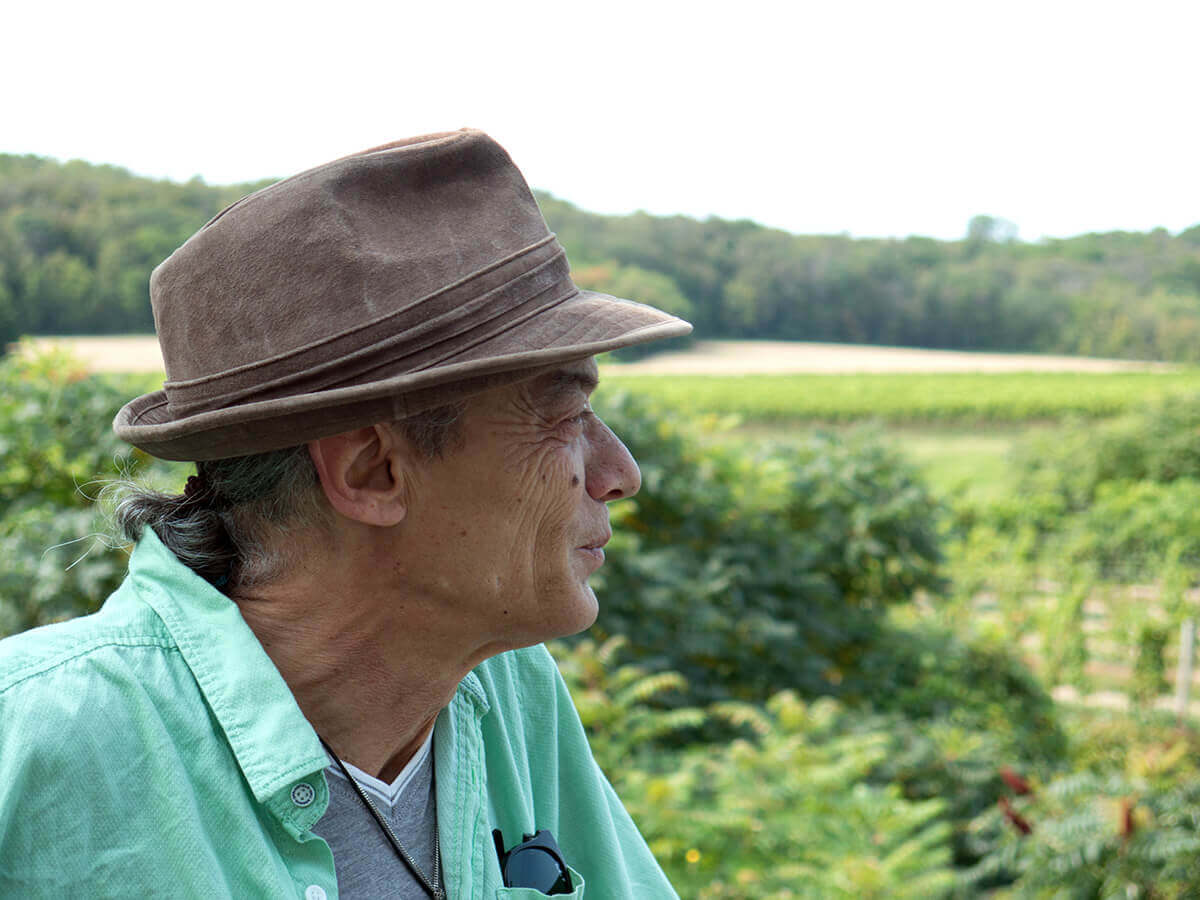
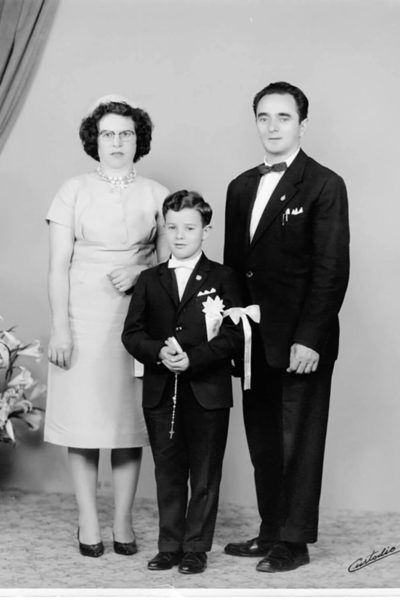
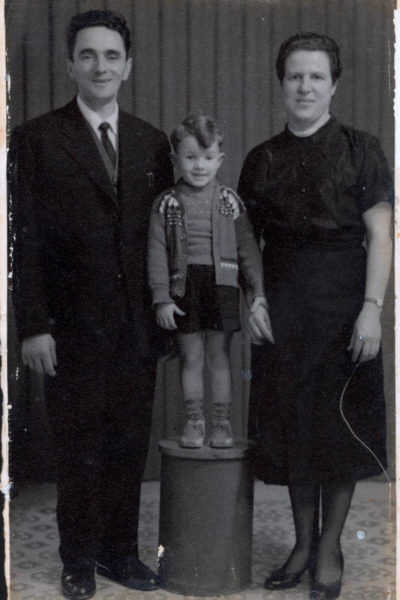
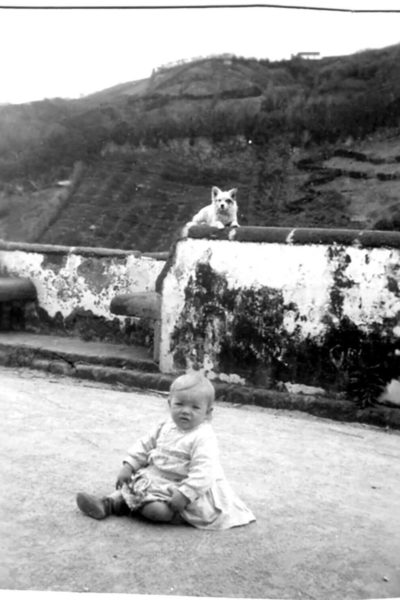
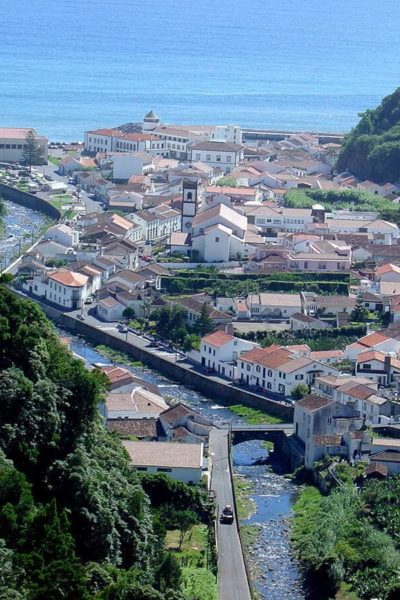
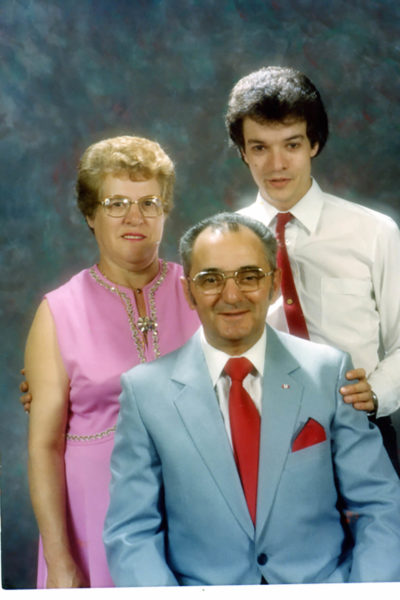
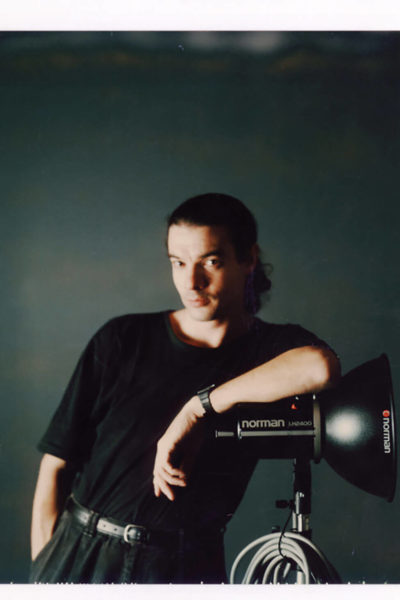
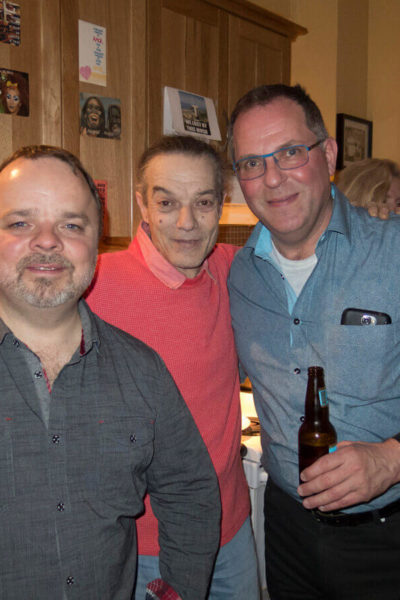
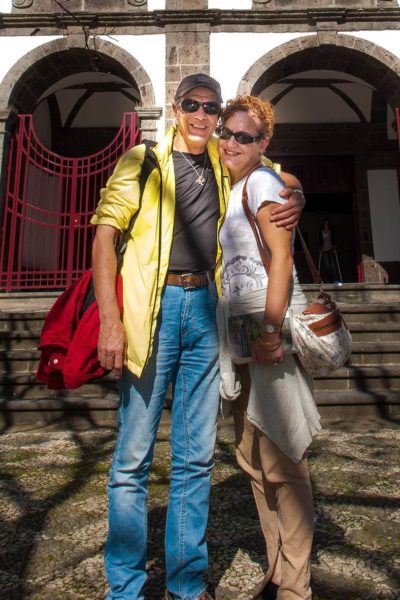
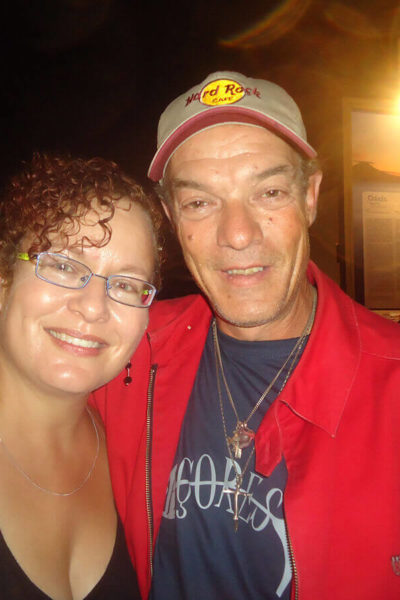
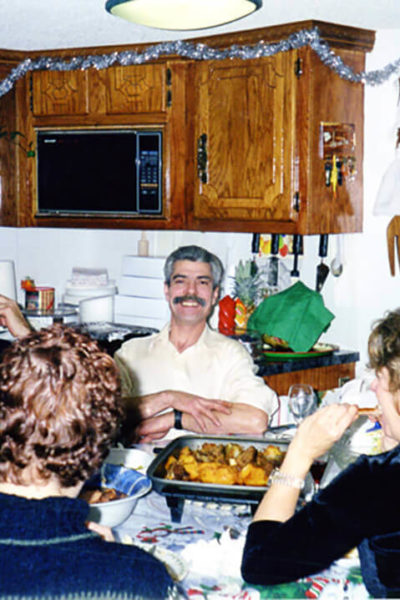
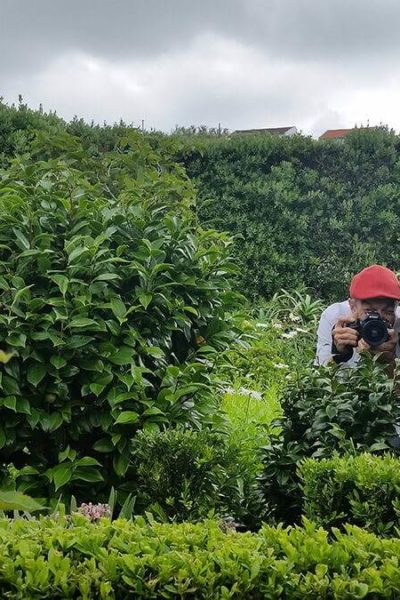
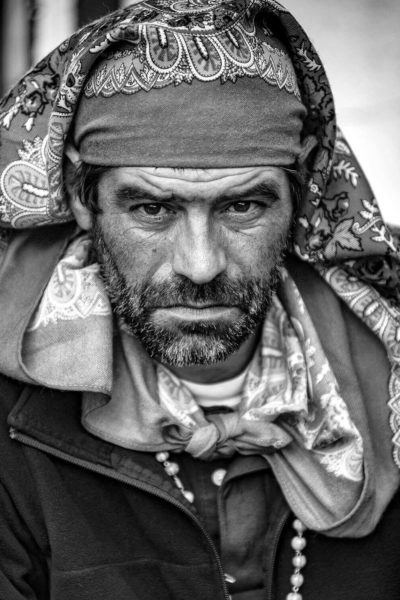
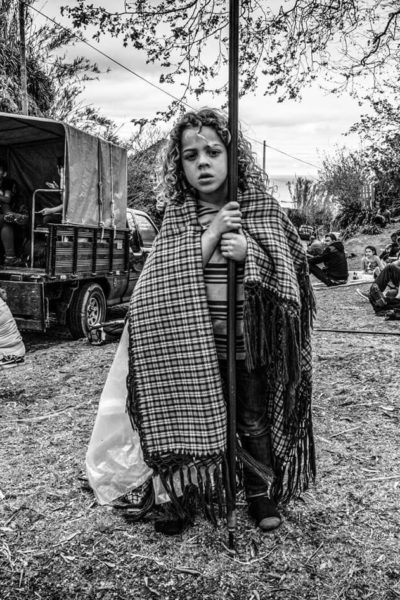
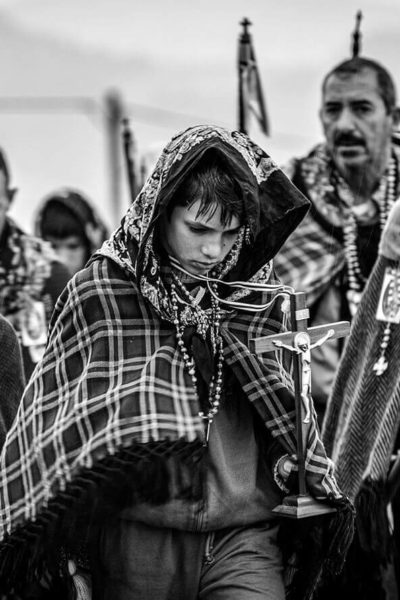

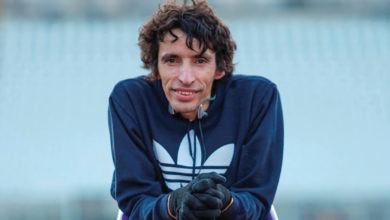
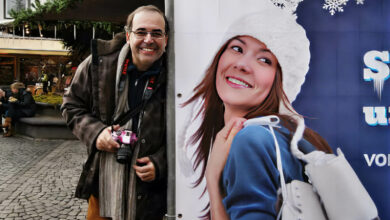


Redes Sociais - Comentários